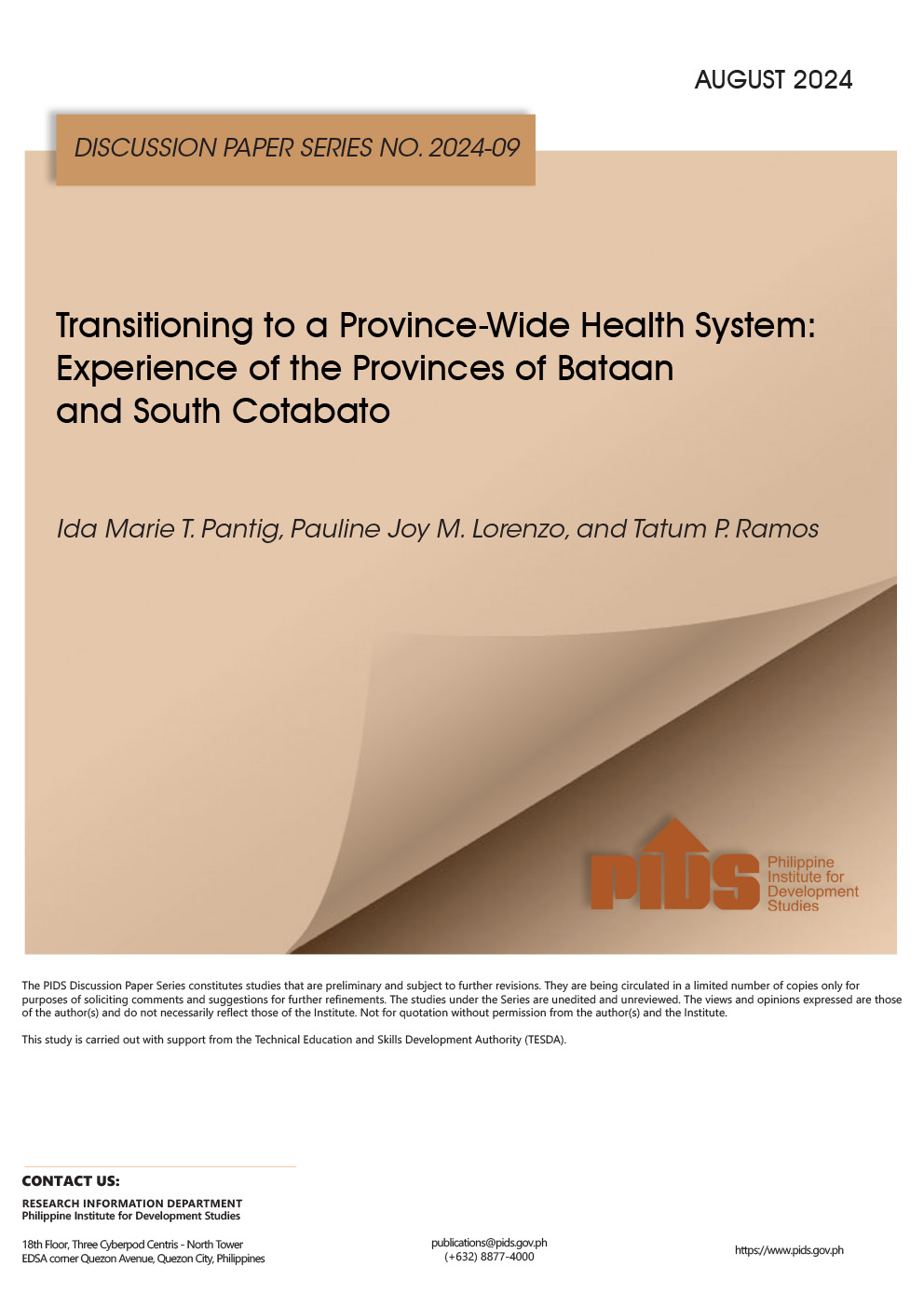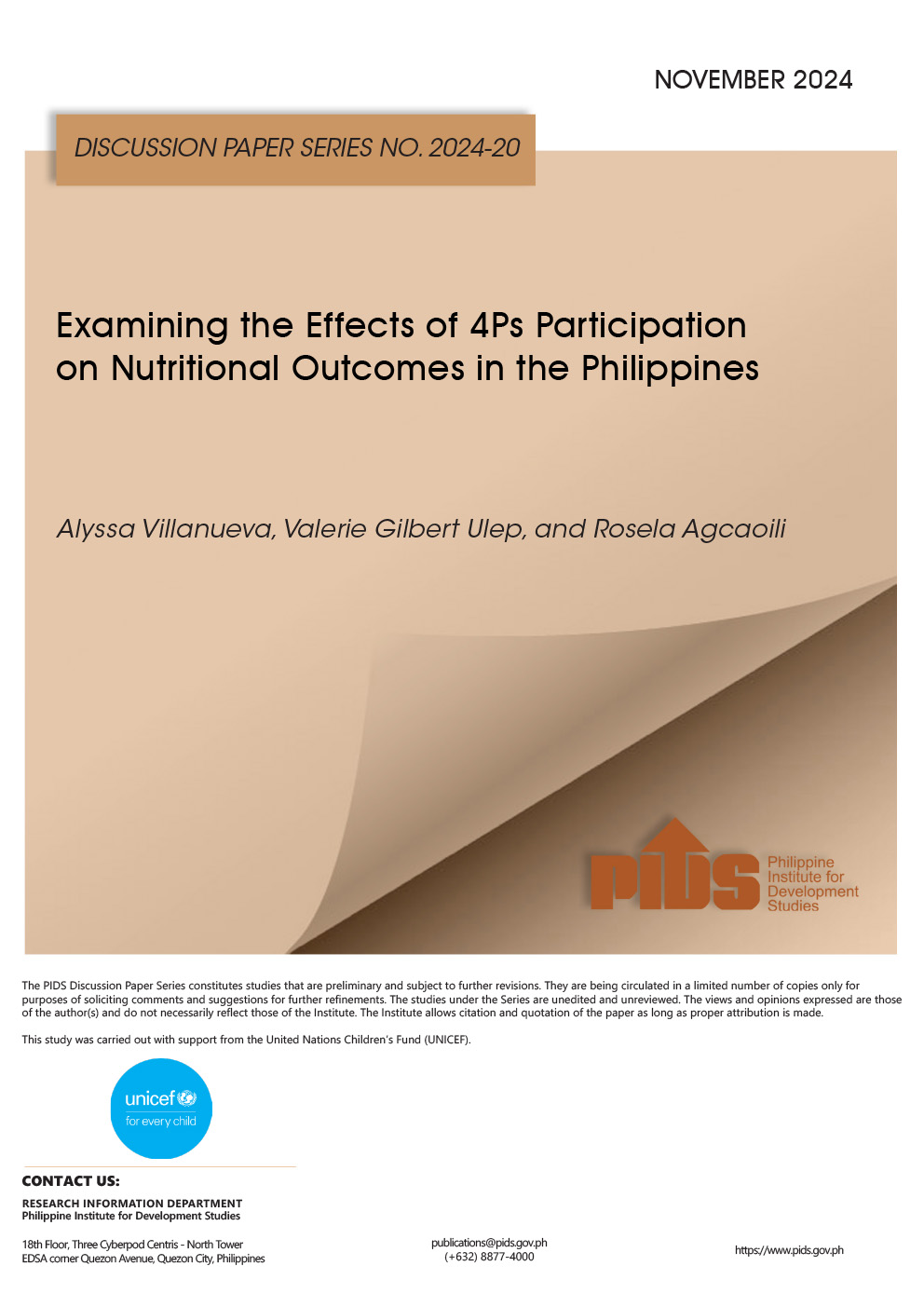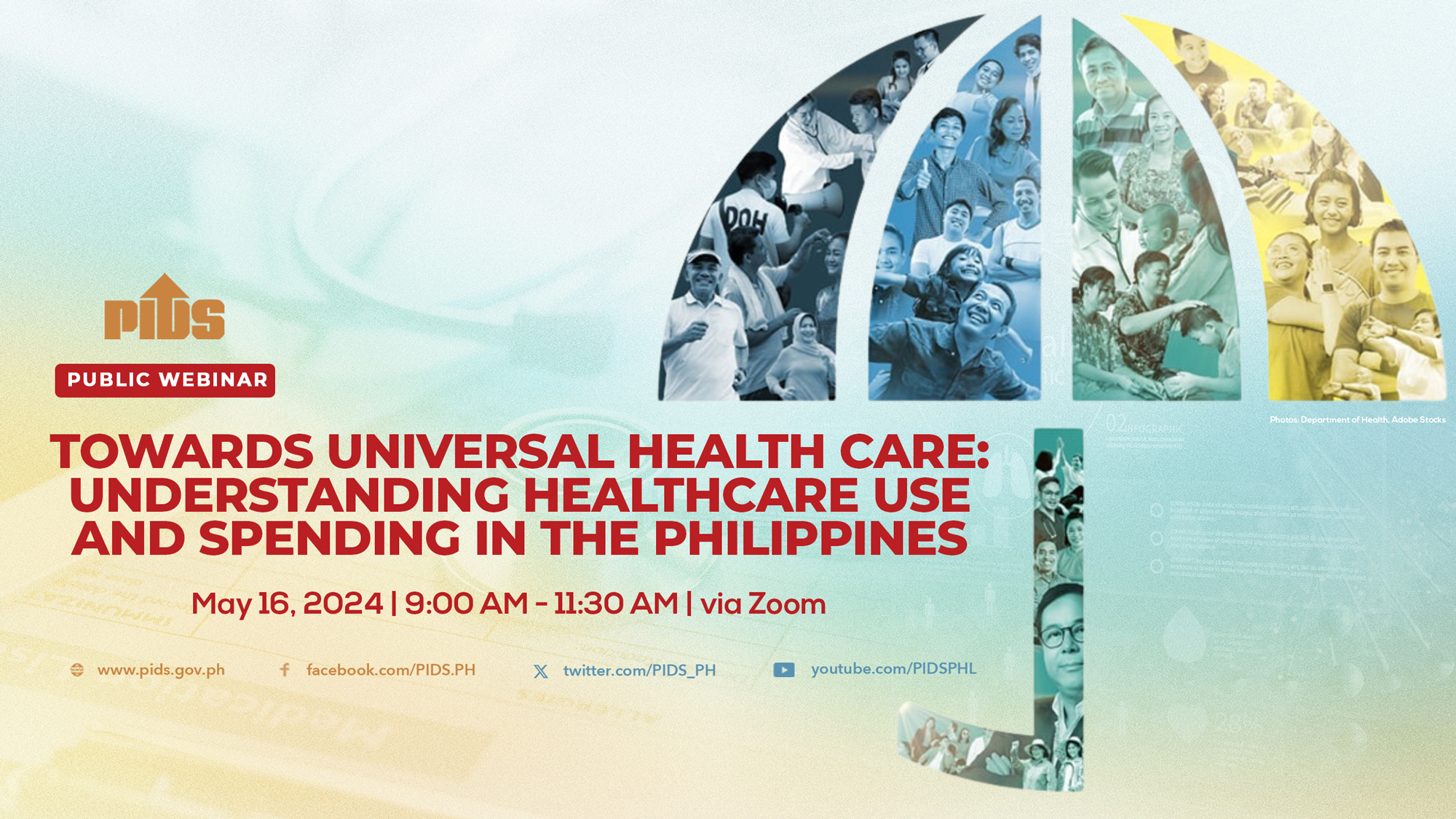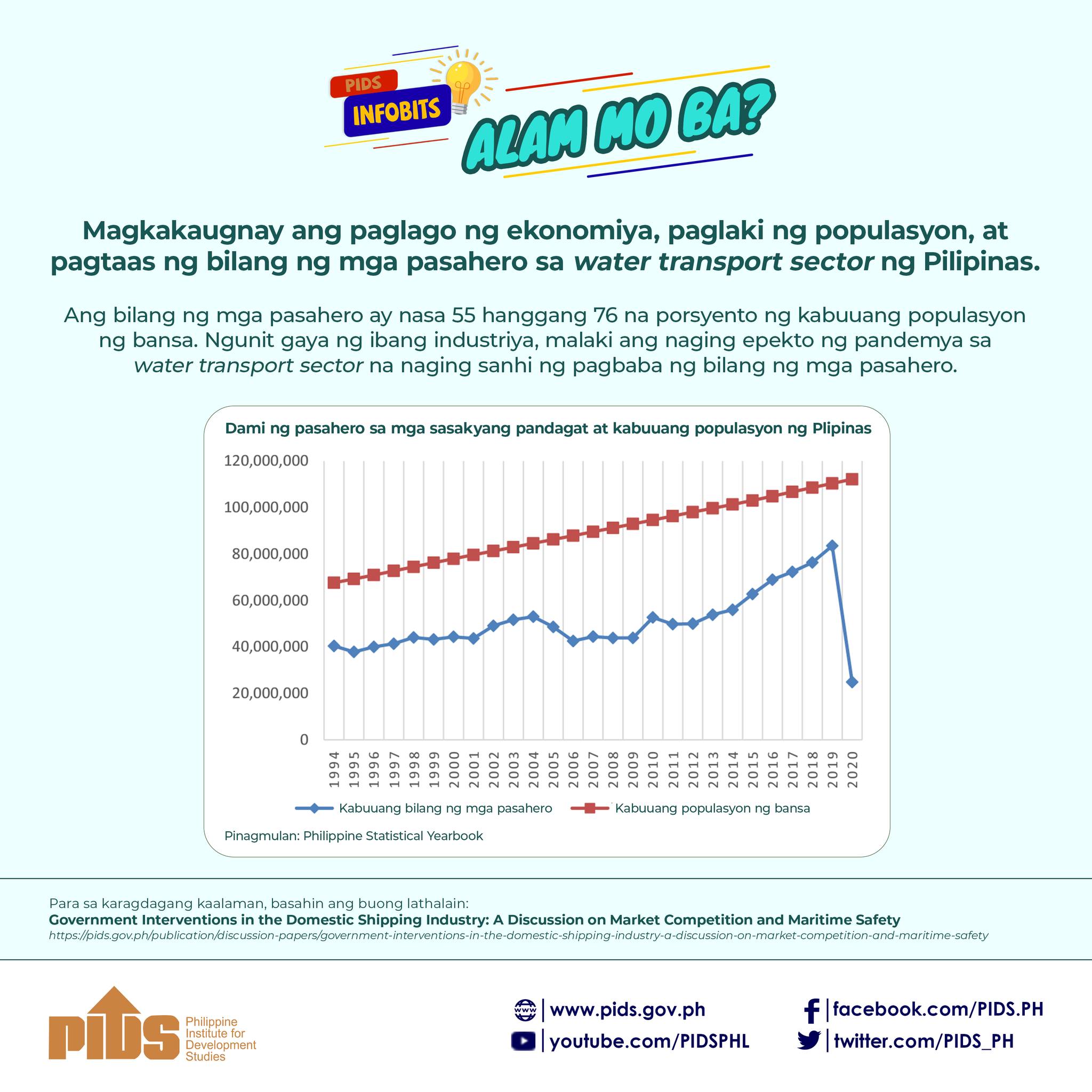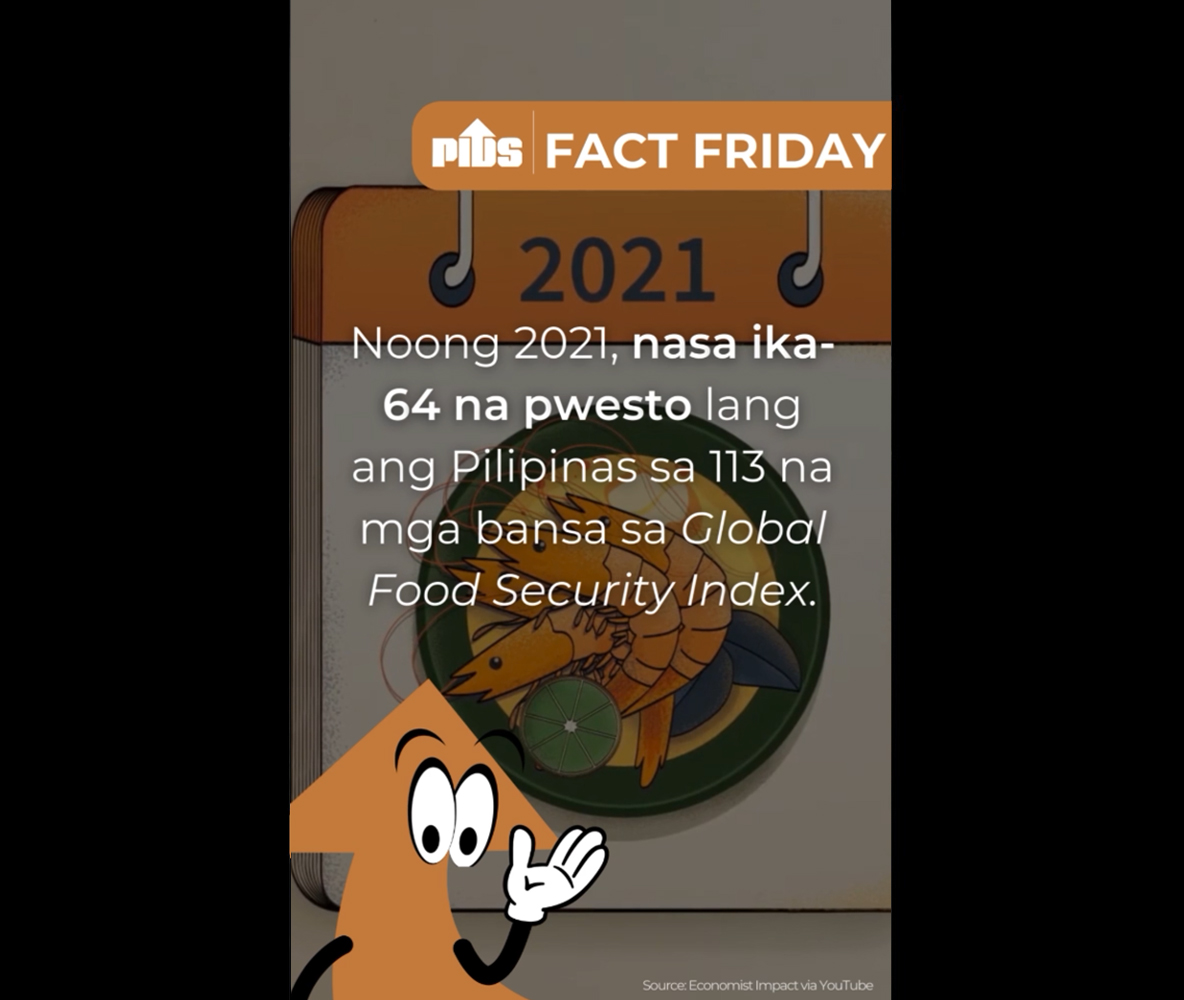FOOD SECURITY will depend on how regulators also manage related industries like transport, energy, and health, the Philippine Institute for Development Studies (PIDS) said in a report.
PIDS Supervising Research Specialist Ivory Myka R. Galang delivered the conclusions in a recent webinar of her study, “Is Food Supply Accessible, Affordable, and Stable? The State of Food Security in the Philippines.”
She added that data-driven monitoring and evaluation will be essential to enable regulators to view the interconnected industries as an ecosystem.
“The food system cannot be isolated from the transport, energy, health, and other systems. So, programs and initiatives must always consider coordination among agencies handling the different systems,” Ms. Galang said.
Ian Jomari C. Panaga, a senior member of the Department of Agriculture’s (DA) policy research service, said the critical points of contact are the relationships among farmers and fisherfolk, local government units, and the private sector.
He added that the DA has been organizing smallholders to provide credit support and extension services at the grassroots level.
“Through these initiatives, we can engage our cooperatives to become viable blocks or units of production with higher operational efficiency and improved profits,” Mr. Panaga said.
Ellen Ruth F. Abella, officer-in-charge at the National Nutrition Council’s Nutrition Surveillance division, called for improved health and nutrition literacy.
According to the 2022 Human Development report of the United Nations Development Program, malnutrition and hunger in the Philippines worsened, with the Philippine human development index (HDI) score ranking it 116th out of 191 countries, compared to 113th a year earlier.
The HDI ranks countries based on three dimensions of human development: lifespan and health, knowledge, and standards of living.

